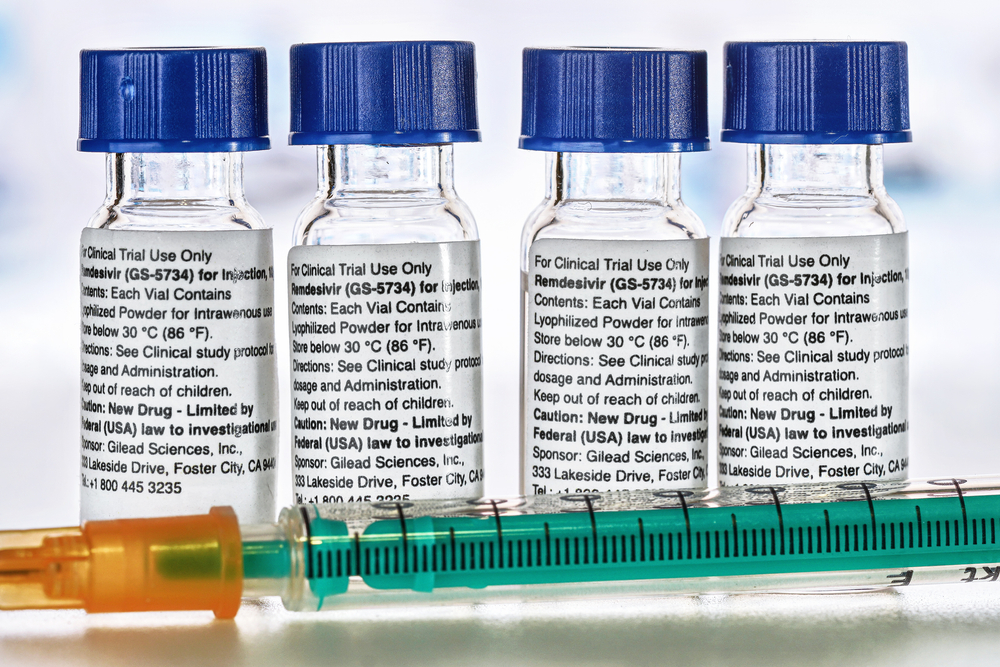
Under a plan finalized on May 3, 607,000 vials of the drug remdesivir were donated for use in United States hospitals hosting COVID-19 patients by the drug’s creator, Gilead Sciences, Inc.
These shipments began to roll out on May 7, packed into cases and dispatched to Connecticut (30 cases), Illinois (140 cases), Iowa (10 cases), Maryland (30 cases), Michigan (40 cases), and New Jersey (110 cases). Each case contained 40 vials of the donated drug, according to the U.S. Department of Health and Human Services’ Office of the Assistant Secretary for Preparedness and Response (ASPR). Earlier, the initial allocation was also sent to Indiana (38 cases), Massachusetts (117 cases), New Jersey (94 cases), New York (565 cases), Rhode Island (30 cases), Tennessee (7 cases), and Virginia (33 cases).
State health departments will be responsible for distributing the doses to appropriate hospitals. Not everyone can gain access, though — the only candidates accepted for the use of the doses must be patients on ventilators, on extracorporeal membrane oxygenation or who require supplemental oxygen due to room-air blood oxygen levels below 94 percent.
Gilead estimated 78,000 people could benefit from the drug over the next six weeks of shipments.
Remdesivir is currently operating under an emergency use authorization from the U.S. Food and Drug Administration and is also undergoing a new clinical trial run by the National Institute of Allergy and Infectious Diseases. Preliminary results from a separate test conducted between the National Institutes of Health and Gilead Sciences showed the drug’s potential to spur faster recovery from COVID-19. The data was insufficient to determine if remdesivir brought any lower mortality rates, though.




